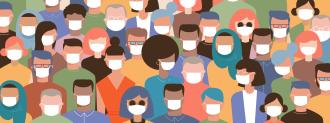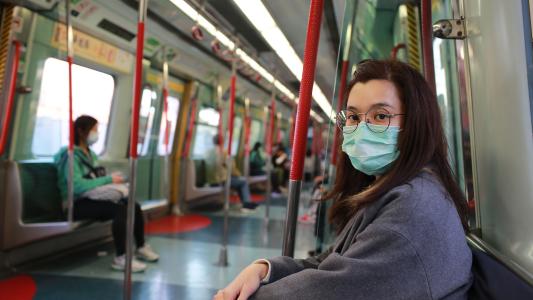With the exception (maybe) of people who’ve already recovered from COVID-19, the novel coronavirus can seemingly infect and kill anybody — no one appears naturally immune.
But that doesn’t mean the coronavirus affects everyone equally.
According to a newly released CDC report, two COVID-19 risk factors are particularly likely to increase a patient’s chances of having a severe case — and there may be others we don’t yet know about.
Who Is at High Risk for COVID-19?
Age is one of the significant COVID-19 risk factors highlighted in the new report, which looked at more than 1.3 million reported cases of COVID-19 in the U.S. between January 22 and May 30.
Of those, the majority (50.8%) were people between the ages of 30 and 60, and about a third (30.3%) were people over the age of 60. However, people in that older age group accounted for 60.8% of COVID-19 hospitalizations and 87.4% of deaths.
Nearly a third of patients over 60 with preexisting conditions died.
Having a preexisting health condition, such as heart disease or diabetes, is another major COVID-19 risk factor, based on the CDC report.
Only 7.6% of otherwise healthy COVID-19 patients (those with zero preexisting conditions) ended up in the hospital, compared to 45% of people with one or more preexisting conditions.
That means having a preexisting condition makes a person six times more likely to require hospitalization if they catch the coronavirus.
Preexisting conditions also dramatically increase a COVID-19 patient’s risk of dying: only 1.6% of otherwise healthy people with known cases of COVID-19 died, compared to 19.5% of those with preexisting conditions — a twelve-fold increase. (Both of these figures probably overestimate the fatality risk to some extent, as they don’t include cases that went untested.)
People with both of those COVID-19 risk factors — an age over 60 and a preexisting condition — were at the highest risk of a serious case: 58.1% of them ended up in the hospital and 31.5% died.
Catching COVID-19 Risk Factors
While age and preexisting health conditions are the two highlighted in the CDC report, researchers are looking into other potential COVID-19 risk factors, including a person’s blood type, their DNA, and even the amount of hair on their head.
One thing to remember about all of these studies, though, is that they focus on biological factors that affect a person’s chances of having a severe case of COVID-19, not their chances of catching it.
While you might not be able to control your age or health status, there is a lot you can do to prevent yourself from catching COVID-19 in the first place: practice good social distancing, wear a mask in public, and wash your hands often.
And if you suspect you might have COVID-19, try to get tested as soon as possible — research suggests that an early diagnosis can prevent cases from becoming severe.
We’d love to hear from you! If you have a comment about this article or if you have a tip for a future Freethink story, please email us at [email protected].






